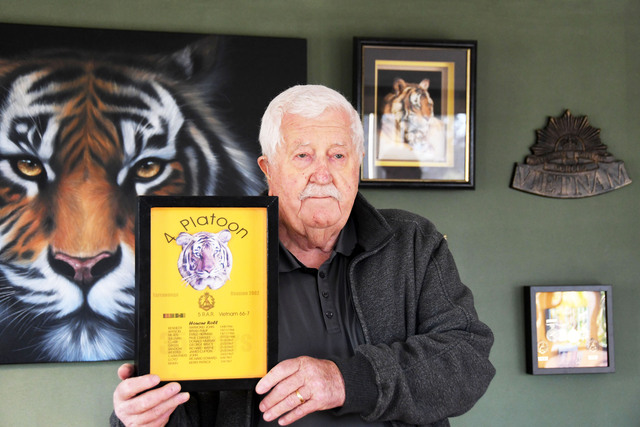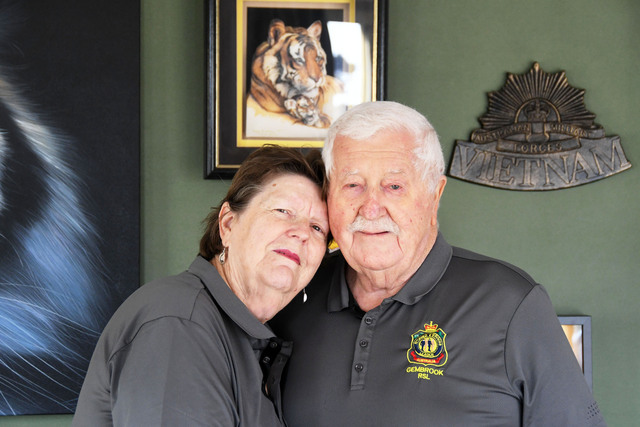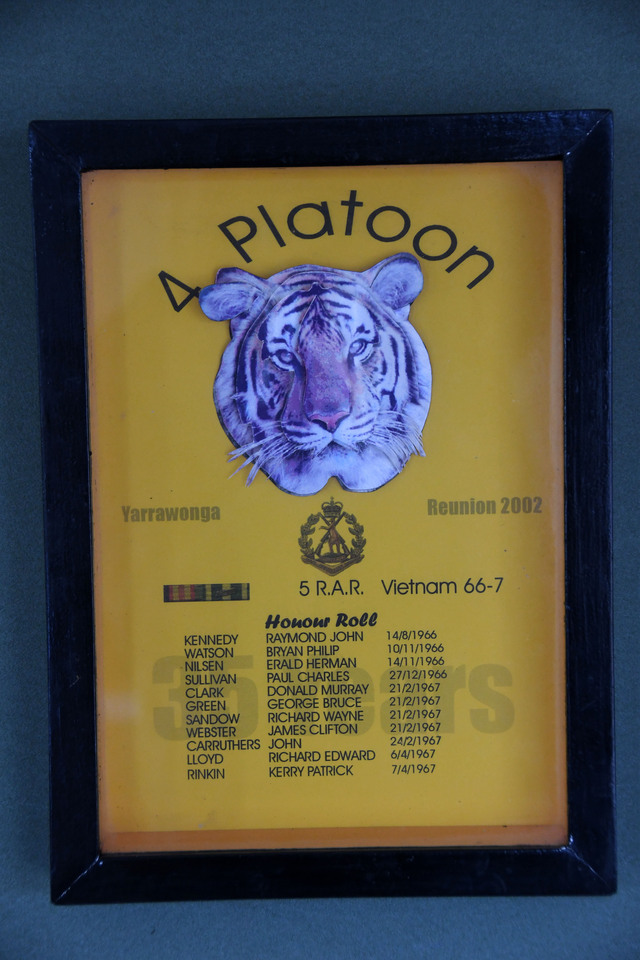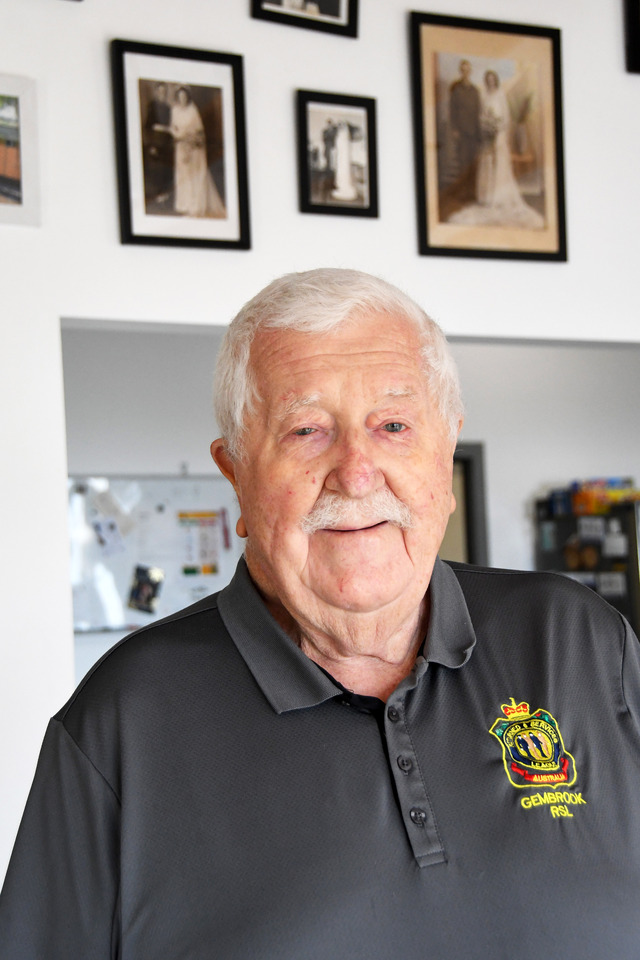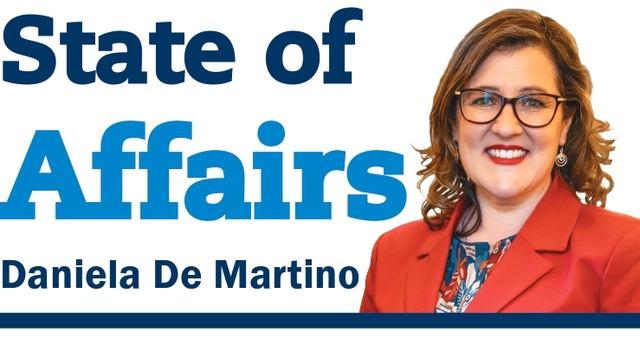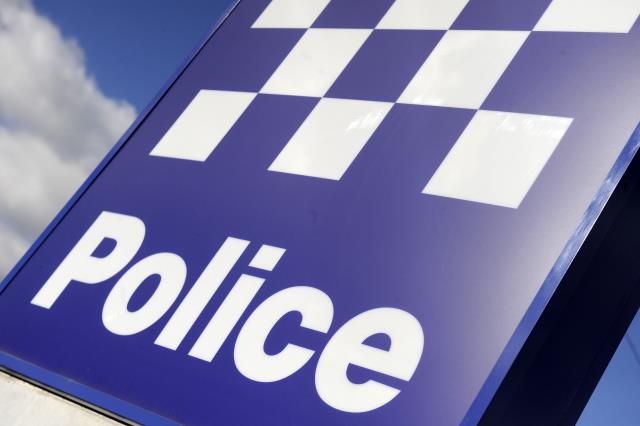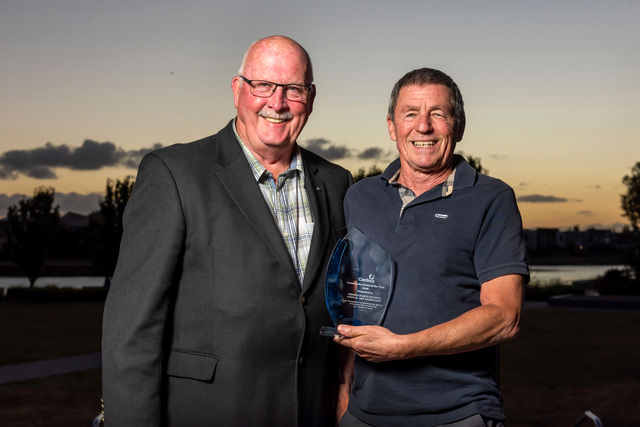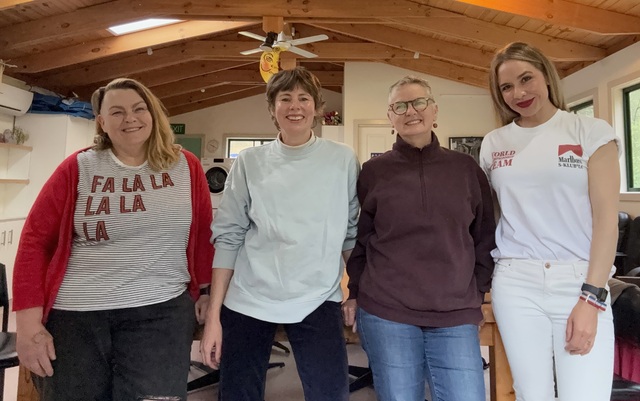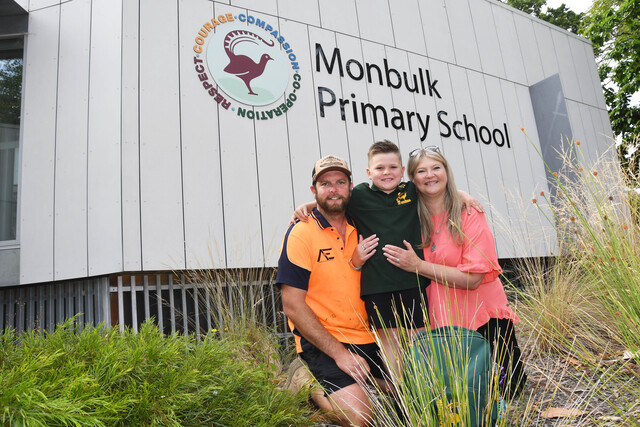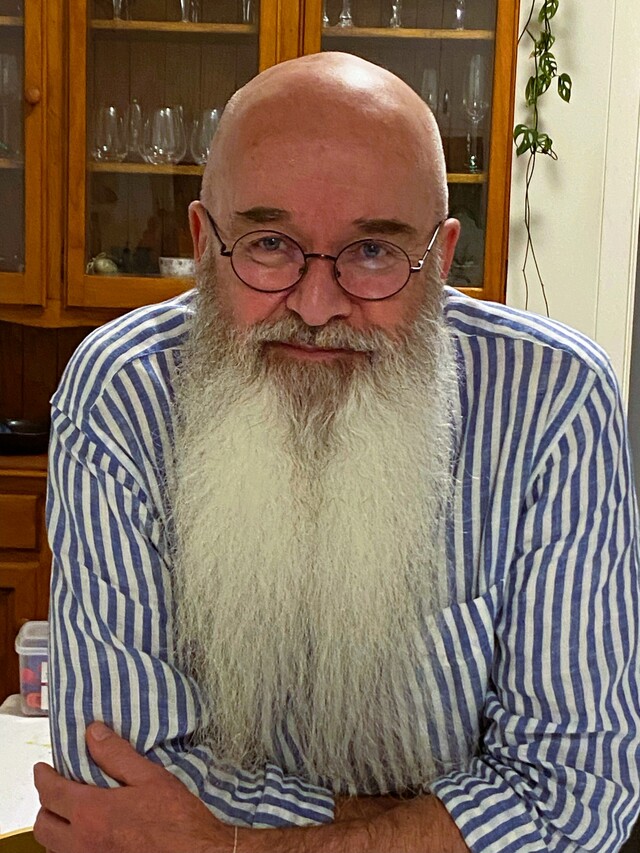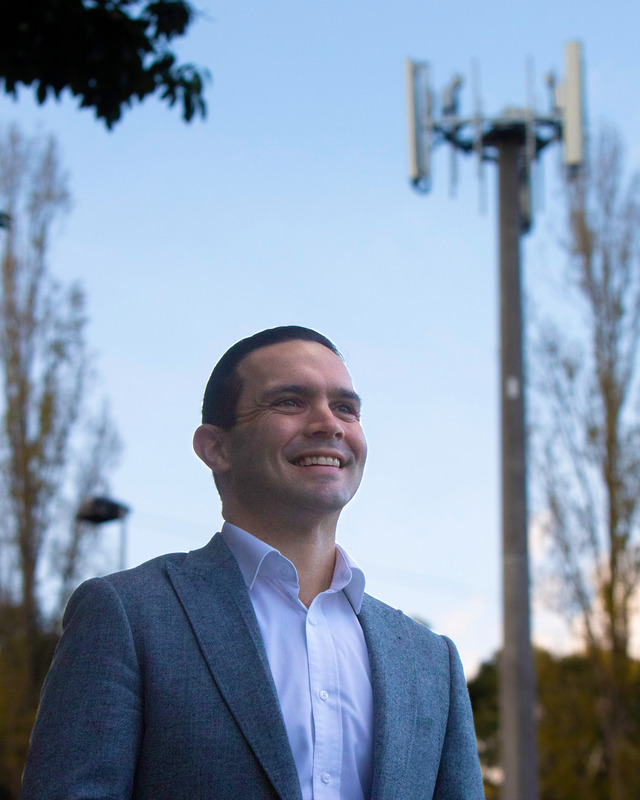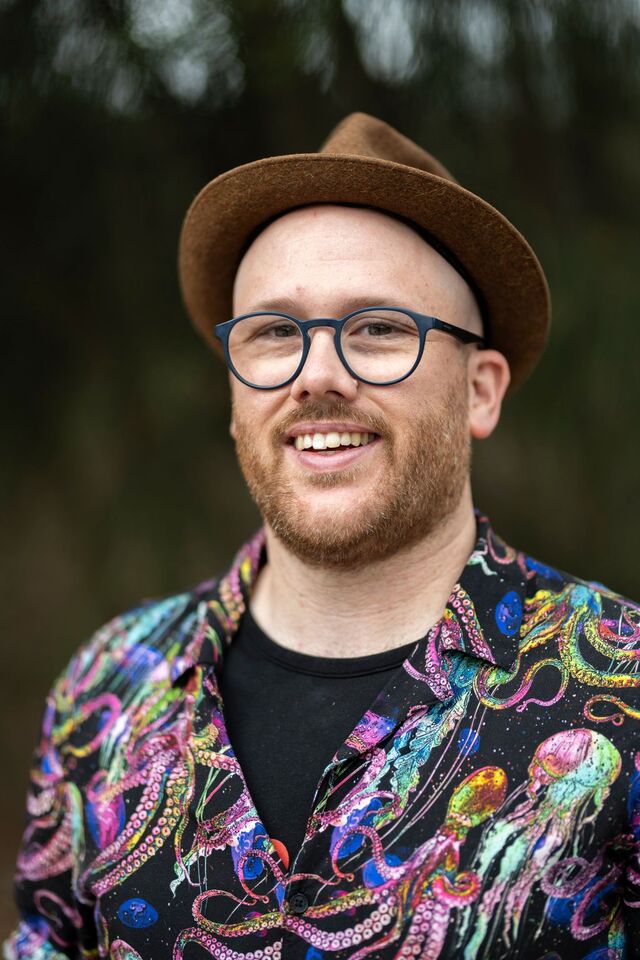Gembrook RSL has had a changing of the guard recently with an all new executive to bring in a vibrant future for the sub-branch.
Leading this new change is President Neville Bryant, who only joined the branch a few years ago.
Neville left the service in 1970, he met his wife Bev in the army who served in the women’s corps.
They would move to Gembrook in 1983 where they raised their kids, despite military service being such a core section of their life they wouldn’t officially join their local RSL branch until about three years ago.
“Everytime I went across this RSL, I didn’t feel right,” Neville said.
“1983 when we came across, our next door neighbour who was a Navy vet of the Second World War tried to drag me over there.
“I didn’t like it and I just got away from it.”
Bryant served in the Vietnam War. As the war became a major crisis that would drive much of politics during the late 60s and 70s, returned soldiers took the brunt of criticism.
“They really hung it on,” Bev explained.
“When you came back, you didn’t spread it around. You would go to the RSL and the World War One fellows would tell you to come back until you have fought a real war.
“They were fighting everything against them and some of the RSLs were the worst.”
Neville enlisted in 1964, like many who did at the time or would be conscripted, there was no sense of what Vietnam would become. Neville wasn’t even certian he would be deployed to Vietnam at all.
He was 17-and-a-half-years-old when he signed up, his father did six years through Second World War, so he figured he would do six years as well.
The allocating of soldiers was in part done through a ranking system, the higher the performance in the platoon over training, the more choice one had.
Neville was second best in his so he could pick wherever he wanted to go and that place was infantry.
Yet, his allocation officer was adamant on convincing him to take engineers, electrical engineers or officer training. None convinced a young Neville who thought if there is fighting ‘I wanted to be in it’.
“He spent ten minutes there trying to talk me out of infantry, he said I would be wasted, but I wanted to go there,” Neville said.
He set foot in Vietnam in May 1966, he was in Fourth Platoon of Fifth Battalion, also known as ‘Tiger Battalion’. He was a part of some of the first platoons made of enlisted and conscripted men.
Everyone got a nickname and Neville’s was ‘Blue’ because of his fiery orange hair. He was the machine gunner for his platoon, one of the most dangerous roles on the front lines.
He would survive his tour, but he would be burdened with seeing many of his friends not.
Of his platoon made up of over 30 men, 11 would be killed in 1966-67. Eight of them he would see first hand.
Tents were usually occupied by four at the time, originally it was him, Raymond ‘Ray’ Kennedy, Erald ‘Nilo’ Nilson and Paul ‘Tubby’ Sullivan.
By December 1966 Ray and Nilo were killed in action.
“I had seen Tubby, I said to him if anything happens to me can you tell my parents what happened to me. He said certainly, I said I would do the same, but he didn’t want anyone to know,” Neville said.
Two days after Christmas in 1966, Tubby was shot with a 45. caliber round through the chest.
“I was half-hearted at that stage and then when Tubby was killed I was the only one left in the tent, I said for Christ-sake let’s get this over and done with as quick as we can,” Neville said.
“In that incident, the VC got caught by another ambush of ours and the machine gun bullets were busting away at the bamboo just… I could of reached up and touched it, I just sat there and looked at them, I couldn’t care less.
“My whole plan at that stage was if we were going to run into the enemy, I was going to charge not for anything other than get it out of the way.”
The next time the platoon would engage with the Viet Cong, Neville wouldn’t have time to charge and his tour of Vietnam would come to an end.
In February 1967, Fourth Platoon were in the Long Hai Mountains on an operation. They had spent about two weeks in the mountains patrolling before they ran into an engagement.
They were marching on foot and in armoured vehicles. They had a small Bell helicopter above scouting ahead.
Firing started coming from the helicopter, shooting into the distance past a small rise in front of them. They were ordered to get on top of the armoured vehicle and engage. With a weapon at the ready, he was on top with two others on the vehicle.
He was on the first armoured vehicle in the front, on its way it would run over a buried explosive
“I was up on top, Greeny was on the right hand side of me, Clarky on the left hand side,” Neville said.
“I was thrown 30-feet backwards and 30-feet in the air, had nothing left on, had everything blown off me, all my hair was gone.
“When we hit it everyone except me was killed on top.”
Running around in shock with nothing but his boots on, the scene would be hit again with a mine that would shoot shrapnel into the inner of Neville’s right arm.
Seven were killed on that day, a further two died of their wounds in the days after.
He was in a military hospital for a week after, he was effectively immobile during this time where the nurses had to inject into his thighs as the flesh was burnt on his arms.
Shortly he would be back home in Sydney, he wanted to eventually go back to Vietnam but he could never be cleared medically from then on. He would continue his service on base where he would be a drill instructor and other roles until he was done in July 1970, serving his six years.
He would never regret serving his country, but he knows his platoon saw its fair share of a horrific war.
“It wasn’t a fun time for me, a lot of people went across there and never even fired a shot in the infantry, but unfortunately we didn’t get that pleasure,” Neville said.
He would keep in touch with close friends from the war who survived, it would take a long time to become open beyond them.
Not only because of the overt shame from others over a war he played no role in starting nor prolonging, but also because of the trauma.
A lot happens in war, some moment stick forever, some are forgotten and come to emerge later in life.
One day, years back into civilian life when they were settled down in Gembrook with their young children, Neville would break down due to recalling an incident in August 1966.
Their platoon took over in place of another in an operation. They arrived at the scene of a woman and child who got caught in machine gun fire. The child was dead having been shot through the heart and the woman was still alive with three gunshot wounds.
“When I came into the site, bearing in mind I had seen a fair bit of crap before it, I looked at the boy and I knew he had to be buried, I looked at the woman and said no she is going to survive if we can get her out,” Neville explained.
“We took ten minutes burying the boy, at the stage the woman was moaning and I went up to the skipper to ask how long before this chopper came in to take the casualty out.
“He looked at me and had tears coming down his eyes when he said, ‘Blue I can’t do a thing, I just got the message direct from Canberra, bury the mistake’.
“We waited there for a couple of hours waiting for her to die, then we buried her.”
Neville has been open about this in the years since he broke down which has come with its own flack as he labels the incident a ‘murder’.
He has learnt that honesty is the way to healing, openness is far better than letting it rot inside.
“I’ve talked about it, I’ve found a lot of people lock it up inside them, but it eats its way out one way or the other,” Neville said.
“I will quite happily talk about incidents that happened over there that I was quite upset about.”
He has gone to many reunions of Fourth Platoon and met many still around from Tiger Battalion.
The last group he tended to avoid was the local RSL, it wasn’t until a few years ago that Bev dragged him down to local dawn service.
He would meet the committee and get active almost straight away with a number of other ex-servicemen involving themselves as well.
His openness with his story reached a pinnacle last year when he spoke at the Gembrook dawn service. Retelling his story with many expressing their respect for the honesty of the speech.
Over the last year, the previous committee of the Gembrook RSL expressed their wish to depart.
“Norm said I had enough, then Greg the secretary already made the statement that it’s his last year and the treasurer decided it was her time to pull the plug too,” Neville said.
“So there were three brand-new people for president, treasurer and secretary and never had much to do with the RSL at all, we are finding our way with things and so far it hasn’t been too much of a mess.”
The executive is now all ex-serviceman, including Bev as treasurer with Dave Tracy as secretary and Richard Bahnsen as vice-president.
This Anzac Day will be the first dawn service this new committee will organise with many more ideas coming to further build the sub-branch in the hills.
The service starts at 5.45am on Main Street and will march down Redwood Road with breakfast to be served and a raffle to be drawn after at the RSL.
If you wish to get in contact with Gembrook RSL contact gembrookrsl2024@gmail.com.

